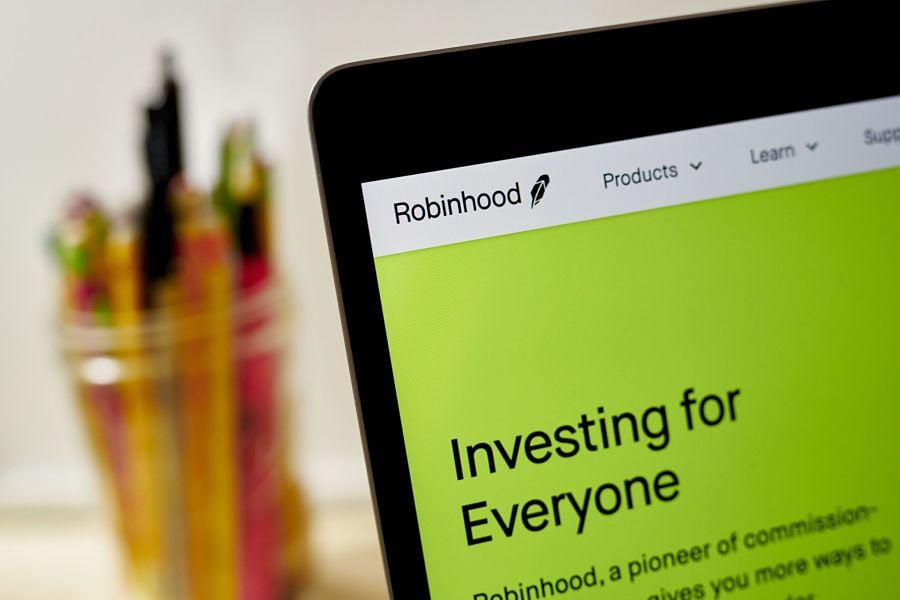

Robinhood Markets Inc. warned investors Wednesday that a second-quarter revenue surge that was fueled by a boom in cryptocurrency trading might not last.
In its first earnings report as a publicly traded company, the brokerage said revenue more than doubled to $565 million, but that a significant portion of that was fueled by virtual currencies, primarily Dogecoin, a token that originated as a joke.
Shares of Robinhood tumbled 8.2% to $45.70 in extended trading at 6:35 p.m. Wednesday in New York, after climbing 31% since the company's July 29 initial public offering.
“We expect seasonal headwinds and lower trading activity across the industry to result in lower revenues and considerably fewer new funded accounts” in the third quarter, Robinhood said in a statement.
Crypto revenue totaled $233 million in the second quarter, up 4,560% from a year earlier, underscoring how the ever-shifting preferences of retail traders play a crucial role in how much revenue the company generates. That figure exceeded revenue from stock and options trading combined. Dogecoin accounted for 62% of crypto revenue in the period.
After reporting the results, Robinhood executives fielded questions from retail investors during a conference call — a role typically reserved for Wall Street analysts. Earlier this month, Robinhood purchased Say Technologies, a software provider that allows individual investors to submit questions to management.
One person asked whether they could have Robinhood-branded hats and hoodies. Another wanted to know whether Robinhood will provide crypto wallets, which allow users to send and receive virtual currencies without first converting them into dollars.
“It’s something that our teams are working on,” Chief Executive Vlad Tenev said, adding that they’re in particular demand among Dogecoin enthusiasts. “The ability to deposit and withdraw cryptocurrencies is tricky to do with scale, and we want to make sure it’s done correctly and properly.”
Robinhood is also weighing whether it would make sense to add social media features on its app, Tenev said in response to another inquiry.
Executives also said Robinhood will explore whether to allow users to give stocks as gifts, make more cryptocurrencies available for trading and offer retirement accounts.
Robinhood’s second-quarter loss of $502 million, which was toward the low end of an earlier forecast, compares with a $58 million profit in last year’s second quarter, when retail investors plunged back into stocks after a pandemic-fueled rout.
The surge in crypto revenue also reflects increased investor appetite for virtual currencies this year. More than 60% of Robinhood accounts traded cryptocurrencies in the second quarter. Bitcoin touched record highs in April, and hovered above $34,500 at the end of June. The price was closer to $9,000 around the same time last year.
Robinhood’s funded accounts reached 22.5 million customers as of June 30, compared with about 9.8 million a year earlier, according to the statement.

Relationships are key to our business but advisors are often slow to engage in specific activities designed to foster them.

Whichever path you go down, act now while you're still in control.

Pro-bitcoin professionals, however, say the cryptocurrency has ushered in change.

“LPL has evolved significantly over the last decade and still wants to scale up,” says one industry executive.

Survey findings from the Nationwide Retirement Institute offers pearls of planning wisdom from 60- to 65-year-olds, as well as insights into concerns.
Streamline your outreach with Aidentified's AI-driven solutions
This season’s market volatility: Positioning for rate relief, income growth and the AI rebound
